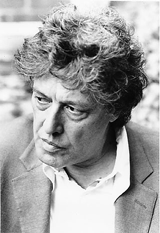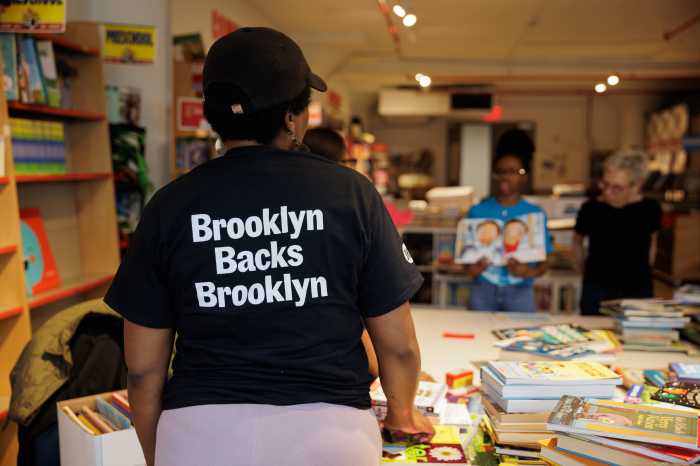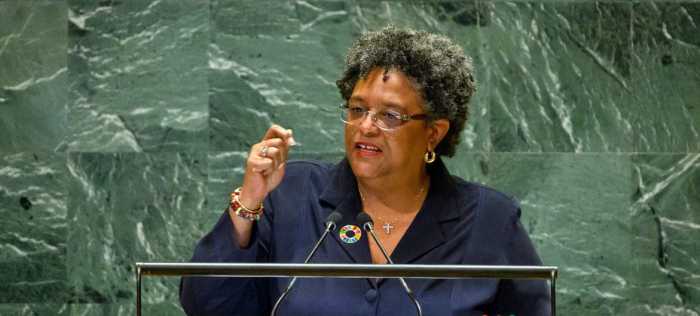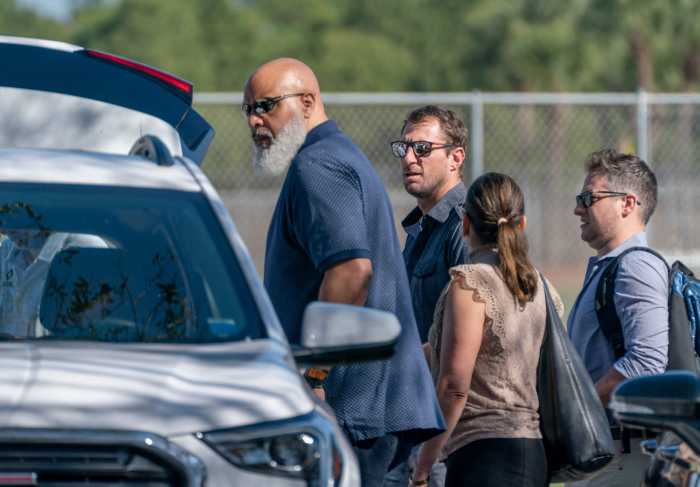Stoppard revival breathes life, even comedy into philosophers’ musings
“The study of moral philosophy is an attempt to determine what we mean when we say something is good and that something else is bad. Not all value judgments, however, are the proper study of the moral philosopher,” says the character George Moore in “Jumpers.” “Language is a finite instrument crudely applied to an infinity of ideas, and… modern philosophy has made itself ridiculous by analyzing such statements as “This is a good bacon sandwich… [T]o say that this is a good bacon sandwich is only to say that by the criteria applied by like-minded lovers of bacon sandwiches, this one is… crisp, lean, and unadulterated by tomato sauce.”
But the play will live, will remain very much alive, both on the page and in the minds of any fortunate enough to have relished its past or present stage incarnations, 30 years apart, in New York and/or London.
It was 1971 and Stoppard was 33 when he wrote this dazzling play, his brain cells set agog by the life, thought, and works of Bertrand Russell (1872-1970), English philosopher, mathematician, and ageless lothario.
“I am a camera,” said Christopher Isherwood.
“I am a magpie,” said Tom Stoppard.
And he really is. A magpie who reads everything, voraciously, on all sides, inside and outside, of, let us say, James Joyce, Tristan Tzara, V.I. Lenin, and then writes a play called “Travesties.” He does the same with the writing of A.E. Housman, and John Ruskin, then writes “The Invention of Love.” He reads Lord Byron, about landscape gardening, and about 18th century romantic poetry, then writes “Arcadia.” And, for that matter, Stoppard reads Shakespeare, and then, four years before “Jumpers,” writes a play about those two shadowy guys whose names are Rosencrantz and Guildenstern.
Or before he writes “Jumpers,” he reads Bertrand Russell and company.
“You know, somebody once referred to Bertrand Russell as the non-playing captain of the Bloomsbury Group,” Stoppard said, half in self-mockery, sucking on a stem of his horn rim glasses—what he really craved was a cigarette—during a recent brief visit to New York.
“I wanted to write a play about the moral philosophers,” he said. “It’s just an area that has interested me from my earliest intelligence, really. Whether our sense of good and evil, good behavior or bad behavior, is a social-psychological convention or is given to us from…”
From above?
“Call it God, call it what you will,” replied this lean, tall, gracious heir to Wilde and Shaw, 44 years after he first burst in to the Sheridan Square offices of the Village Voice as a kid newsman from Bristol, England, knowing nobody in America.
The central characters of “Jumpers” include a bewildered ethicist named, as was an actual Russell-era prototype, George Moore (the brilliant Simon Russell Beale); George’s bouncy, juicy, lonely wife Dotty (Essie Davis), a musical-comedy wannabe who is in fact quite dotty, yet shrewd enough to deliver the blockbuster line: “It’s not the voting, that’s democracy, it’s the counting;” and, third wedge in this triangle, the rapacious Archie (Nicky Henson), a rationalist cynic who’s cuckolding George with Dotty while George keeps trying to dictate his philosophical masterwork (“To begin at the beginning: Is God?”) to a silent, sexy secretary (Eliza Lumley).
Parallel to all this is a pin-wheeling mishmash of murder (of a rabbit, a turtle, a human being); a latter-day televised landing on the moon; many songs about the moon; the legendary death drama of the lost explorers Oates and Scott at the South Pole in 1912; and—most emphatically, most visibly—the pyramidal efforts of a broken-down team of acrobats (or “jumpers”) as metaphor for the mental gymnastics of George and all other struggling cogitators.
“A lot of the writing for me is exuberant,” said Stoppard. “I always think of theater as a recreation, before anything else.”
Stoppard also once said: “One doesn’t write plays for them not to be seen.”
Now, at mention of that: “Yes, thanks for reminding me, I don’t think one writes for the pleasure of having a text in bound copies on the shelves.”
The form of “Jumpers”—the architecture of dancer-actors as acrobats—”came from much more prosaic circumstances” than the musings of the moral philosophers.
“When I wrote this play, ‘Rosencrantz and Guildenstern’ had just been done at the [British] National Theatre, a company which had a large number of actors, so that then gave me the opportunity to draw on a large number of people,” Stoppard recalled. “Here in New York we have eight jumpers. Back then I think there were ten or twelve.”
With tongue matter-of-factly in his cheek, Stoppard added, “Even in those days you wouldn’t sensibly, normally write a play for ten or twelve acrobats.” Two beats. “And now at the National I’ve had a play [“The Coast of Utopia,” his trilogy about the Russian Revolution, coming next season to Lincoln Center] for 30 actors in 70 roles.”
He looked around the premises, which were those of a rehearsal room on 42nd Street.
“It’s kind of emotional for me being in this room again. When you’ve done everything and been everywhere, you kind of no longer get the thrill of romance. This is the closest I’ll ever get to doing a Broadway musical,” Stoppard said half under his breath.
But “Jumpers” is not a musical, Tom.
“No, not in the least. It’s a play. It’s a comedy—I hope.” Two further beats. “Well, it is a comedy.”
Yes, a comedy in which the George Moore character declares, “Copernicus cracked our confidence and Einstein smashed it, for if one can no longer believe that a twelve-inch ruler is always a foot long, how can one be sure of relatively less certain propositions, such as that God made the Heaven and the Earth.”
Do you believe in God, Tom?
“I’m asked that quite often,” he said, sucking again on the eyeglass stem. “I’m impressed and intrigued by people who are certain that they don’t. I’m not a materialist [unlike Archie in ‘Jumpers’]. I don’t think my emotions are reducible to electrical events in my neuro system… Well, that’s one answer. As George says in the play, there’s more in one than meets the microscope.”
Yes, and George Moore also says in the play that “knowledge is only a possibility in matters that can be demonstrated to be true or false, such as that the Bristol train leaves from Paddington [Station].”
Tom Stoppard—cub reporter, later third-string drama critic on the Bristol-based Western Daily Press—said with a smile, “That was exactly my train.”
At that, he ripped downstairs and out onto the sidewalk of 42nd Street to light and draw deeply on the cigarette he’d been craving since before God entered the conversation.



































